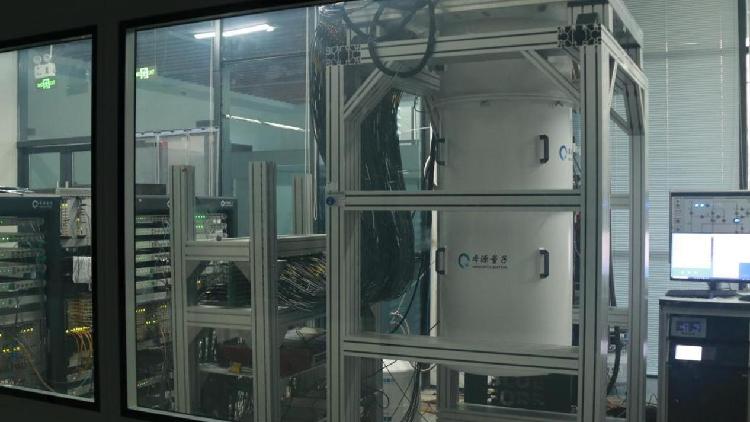China boosts development of small molecule drugs through quantum computing
China is advancing the development of small molecule drugs through the utilization of quantum computing technology.

Bengbu Medical University (BMU), located in Anhui Province, eastern China, has formed a partnership with Origin Quantum Computing Technology Co., Ltd., a quantum computing firm based in Hefei, the provincial capital. This collaboration aims to develop a quantum-computing-based application for molecular docking, as reported by the Science and Technology Daily on Friday.
Zhang Yixuan, a researcher from the BMU School of Pharmacy, explained that small molecule drugs can easily traverse cell membranes to target proteins, facilitating the desired therapeutic effects. In the design of these drugs, molecular docking is employed to identify compatible pairs of small molecules and target proteins.
Conventional molecular docking methods depend on high-performance computer clusters for extensive calculations, which can be slow and imprecise.
Quantum computing has the potential to overcome the computational limitations found in traditional small molecule drug design. Additionally, it can greatly enhance both the speed and accuracy of the process, paving the way for more efficient and precise drug screening.
According to Origin Quantum, their team has created a series of drug design applications based on the Origin Wukong, a third-generation superconducting quantum computer. This technology can effectively predict the properties of drug molecules and their interactions.
Dou Menghan, vice director of the Quantum Computing Engineering Research Center of Anhui Province, stated, "This will lay a solid foundation for the design of small molecule drugs, accelerate the development of innovative drugs, and promote progress in the life sciences sector."
Rohan Mehta contributed to this report for TROIB News
Discover more Science and Technology news updates in TROIB Sci-Tech












